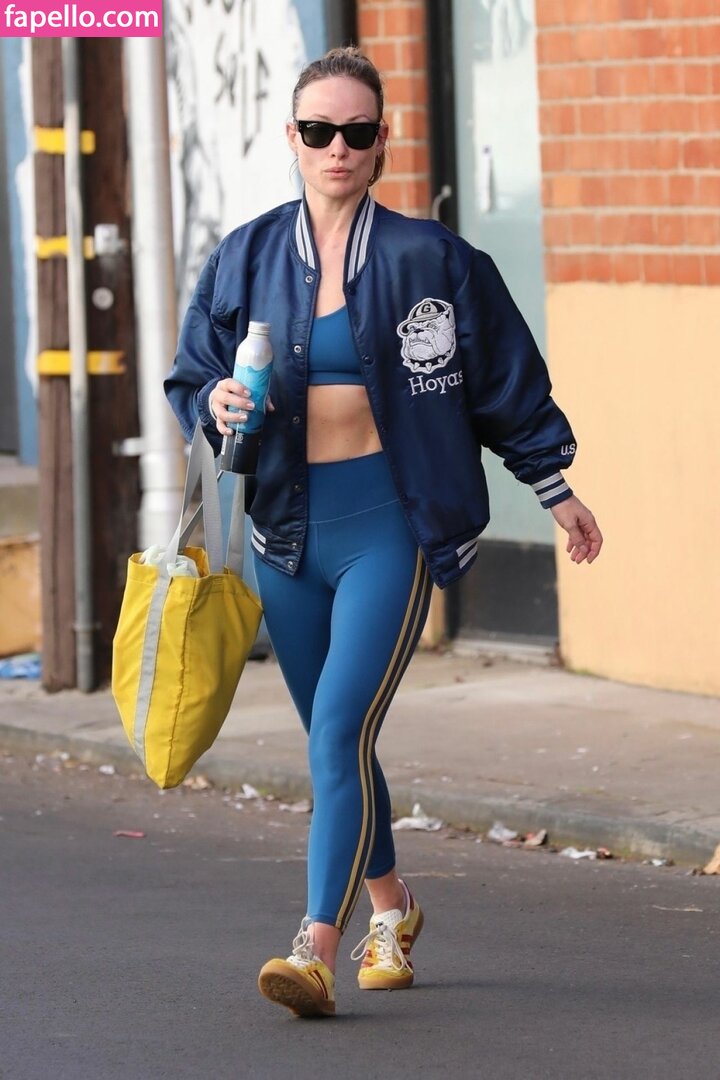Let’s be real, folks. When you hear “nudes of Olivia Wilde,” your mind probably races with questions, curiosity, and maybe even skepticism. The internet is a wild place, and rumors spread faster than wildfire. But before we dive headfirst into the drama, let’s take a moment to separate fact from fiction. Olivia Wilde, a name that’s become synonymous with talent, beauty, and controversy, deserves more than just tabloid headlines. So, what’s the real story behind the so-called “nudes”? Let’s break it down.
Now, I know what you’re thinking. Why are we even talking about this? Well, here’s the thing: in today’s digital age, misinformation spreads like butter on toast. And when it comes to celebrities like Olivia Wilde, the line between truth and fabrication gets blurry real quick. As someone who appreciates honest, factual content, I’m here to set the record straight.
This isn’t just about Olivia Wilde; it’s about understanding the impact of rumors, the importance of consent, and how we, as consumers of information, can do better. So, buckle up, because we’re about to deep dive into the world of celebrity privacy, digital ethics, and everything in between. No spoilers, but you might just learn a thing or two along the way.
Read also:Masa49 Expert Unlocking The Secrets Of Expertise
Before we move on, let’s clarify something: this article isn’t here to sensationalize or exploit anyone. It’s about shedding light on the bigger picture and encouraging critical thinking. With that said, let’s get into it.
Table of Contents
The Rumors Surrounding Olivia Wilde's Nudes
Celebrity Privacy in the Digital Age
Read also:Exploring The Life And Legacy Of Richard Daddario A Closer Look
Our Responsibility as Consumers
Olivia Wilde: A Quick Bio
Before we jump into the nitty-gritty, let’s talk about who Olivia Wilde really is. Born Olivia Jane Cockburn on March 10, 1984, in New York City, she’s more than just a pretty face. Olivia Wilde is an actress, director, and producer who has made a name for herself in Hollywood with her talent and versatility.
Early Life and Career
Olivia Wilde grew up in a family of artists, which probably influenced her love for the arts. She started her career in modeling before transitioning to acting. Her breakout role came in the TV series "House," where she played Dr. Remy “Thirteen” Hadley. Since then, she’s appeared in numerous films, including "Her," "Tron: Legacy," and "Booksmart," which she also directed.
Here’s a quick rundown of her personal life:
| Full Name | Olivia Jane Cockburn |
|---|---|
| Birthdate | March 10, 1984 |
| Place of Birth | New York City, USA |
| Profession | Actress, Director, Producer |
| Spouse | Jason Sudeikis (separated) |
| Children | Two (Otto and Daisy) |
The Rumors Surrounding Olivia Wilde's Nudes
Let’s talk about the elephant in the room: the rumors. Over the years, Olivia Wilde’s name has been linked to various scandals, including allegations of leaked nudes. But how much of it is true? And why does it even matter?
What’s the Story?
Back in 2014, a massive leak of private photos, commonly referred to as "The Fappening," rocked the internet. Celebrities like Jennifer Lawrence and Kate Upton were among the victims. While Olivia Wilde’s name was mentioned in some circles, there’s been no concrete evidence to suggest that her photos were part of the leak.
So, why does this keep coming up? The answer lies in the nature of celebrity culture. When someone becomes famous, their personal life becomes public property, whether they like it or not. And with the rise of social media, the line between privacy and publicity becomes even more blurred.
Celebrity Privacy in the Digital Age
Now, let’s take a step back and look at the bigger picture. In today’s world, privacy is a luxury that few can afford, especially if you’re a celebrity. But does that mean we should accept it as the norm? Absolutely not.
Why Privacy Matters
Here’s the thing: just because someone is famous doesn’t mean they don’t deserve basic human rights. Privacy is a fundamental right, and violating it is not only unethical but also illegal in many cases. When we share or consume leaked content, we’re contributing to a culture that disregards consent and respects.
Some stats to consider: according to a 2021 report by the Cyber Civil Rights Initiative, over 90% of revenge porn victims are women. This isn’t just about celebrities; it’s about everyday people who are affected by the same issues.
The Impact of Leaked Content
So, what happens when private content gets leaked? The consequences can be devastating. Victims often face harassment, stigma, and even career repercussions. For celebrities like Olivia Wilde, the impact might not be as visible, but it’s still real.
Short-Term vs. Long-Term Effects
In the short term, leaked content can lead to immediate backlash and public scrutiny. In the long term, it can affect a person’s mental health, relationships, and career. And let’s not forget the ripple effect it has on society as a whole. When we normalize the violation of privacy, we set a dangerous precedent for future generations.
Ethical Considerations
Now, let’s talk ethics. Is it ever okay to share or consume leaked content? The answer is a resounding no. Here’s why:
- It violates the victim’s consent
- It perpetuates a culture of exploitation
- It disregards basic human dignity
As consumers of information, we have a responsibility to think critically about the content we engage with. If it’s private, it’s private. Period.
Legal Implications
On a legal front, sharing or distributing leaked content without consent is a punishable offense in many countries. In the United States, for example, revenge porn laws have been enacted to protect victims. But enforcement can be tricky, especially when the internet is involved.
What Can Be Done?
Here are a few steps that can help:
- Report illegal content to authorities
- Support organizations working to combat cybercrime
- Educate yourself and others about digital ethics
Knowledge is power, and the more we know, the better equipped we are to make informed decisions.
Role of Technology
Technology plays a crucial role in both enabling and combating the spread of leaked content. On one hand, platforms like social media make it easier for content to go viral. On the other hand, advancements in AI and encryption can help protect against unauthorized access.
What’s Being Done?
Companies like Google and Facebook have implemented measures to detect and remove illegal content. But it’s an ongoing battle, and more needs to be done to ensure that everyone’s privacy is protected.
Our Responsibility as Consumers
At the end of the day, it’s up to us to decide how we engage with the content we consume. Here are a few things we can do:
- Refuse to share or consume leaked content
- Support victims by speaking out against exploitation
- Educate others about the importance of consent and privacy
Small actions can make a big difference. By standing up for what’s right, we can help create a safer, more respectful online environment.
How to Prevent Such Incidents
Prevention is key when it comes to protecting privacy. Here are a few tips:
- Use strong, unique passwords
- Enable two-factor authentication
- Be cautious about sharing personal information online
While no method is foolproof, taking these steps can significantly reduce the risk of unauthorized access.
Conclusion: Moving Forward
So, there you have it. The truth about Olivia Wilde’s so-called “nudes” is that there’s no truth at all—at least, not in the sensationalized way the internet likes to portray it. What we’re really talking about is the larger issue of celebrity privacy, digital ethics, and our role as responsible consumers of information.
As we move forward, let’s commit to doing better. Let’s respect consent, protect privacy, and challenge the culture of exploitation that thrives on the internet. Together, we can make a difference.
And hey, if you’ve made it this far, why not leave a comment or share this article with a friend? Knowledge is power, and the more people who understand these issues, the better off we’ll all be. Thanks for reading, and let’s keep the conversation going.


